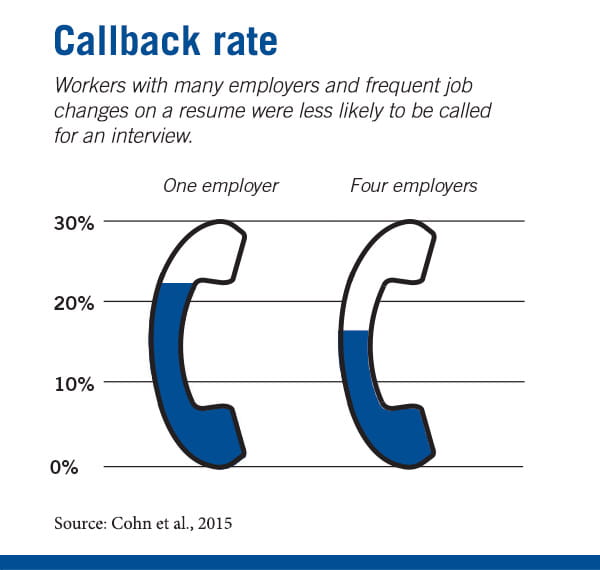
Capitalisn’t: How Big Law Firms Shape Capitalism
Journalist David Enrich joins the podcast to discuss the influence of “Big Law.”
Capitalisn’t: How Big Law Firms Shape CapitalismWhy job hopping could harm employment
Most recruiters prefer applicants who have changed positions less frequently

Frequent job changes can indicate a poor work attitude in a prospective hire.
Alain Cohn, Michel André Maréchal, Frédéric Schneider, and Roberto A. Weber, “Job History, Work Attitude, and Employability,” Working paper, November 2015.

Journalist David Enrich joins the podcast to discuss the influence of “Big Law.”
Capitalisn’t: How Big Law Firms Shape Capitalism
Susan Athey, chief economist at the US DOJ’s antitrust division, joins hosts Bethany McLean and Luigi Zingales to discuss new draft merger guidelines.
Capitalisn’t: The Most Important Guidelines You Didn’t Know About
A system of international payments could benefit Brazil and the whole world.
Paying Up to Save the Amazon May Be Cheaper than the AlternativeYour Privacy
We want to demonstrate our commitment to your privacy. Please review Chicago Booth's privacy notice, which provides information explaining how and why we collect particular information when you visit our website.